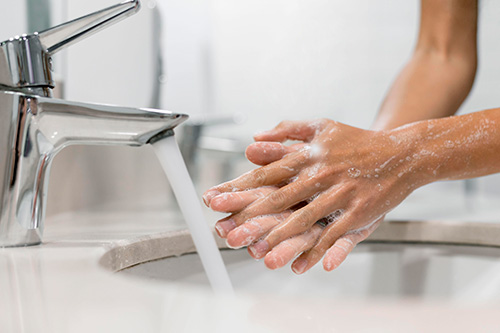Handwashing is a simple yet effective practice crucial in maintaining public health and preventing the spread of infectious diseases. It is critical in the Winter months but can prevent illnesses all year see the reasons why below:
Preventing the Spread of Germs: Hands are one of the primary ways that many infections are transmitted. Touching surfaces contaminated with germs and then touching the face, especially the eyes, nose, or mouth, can introduce pathogens into the body.
Reducing the Risk of Infections: Proper handwashing significantly reduces the risk of various infections, including respiratory infections (like the common cold and flu) and gastrointestinal infections (such as foodborne illnesses). By washing hands, individuals can protect themselves and others from getting sick.
Food Safety: Handwashing is critical in food preparation and handling. Contaminated hands can transfer bacteria and viruses to food, leading to foodborne illnesses. Following proper hand hygiene practices is essential for those working in the food industry and for individuals preparing meals at home.
Healthcare Settings: In healthcare settings, handwashing is a fundamental measure to prevent the spread of healthcare-associated infections. Healthcare professionals, including doctors and nurses, are trained to follow strict hand hygiene protocols to protect patients and themselves from infections.
Promoting Personal Hygiene: Handwashing is a basic element of personal hygiene. Teaching children and adults the importance of washing hands helps instill good hygiene habits from an early age. This, in turn, contributes to overall health and well-being.
Pandemic Preparedness: During outbreaks of infectious diseases, such as influenza or respiratory viruses, handwashing becomes even more critical. It is a simple yet effective measure that can be widely implemented to help curb the spread of the disease.
Antibiotic Resistance: Proper hand hygiene can also contribute to the prevention of antibiotic resistance.
To ensure effective handwashing, individuals should use soap and water, scrub their hands thoroughly for at least 20 seconds, including all surfaces of the hands and fingers, and then rinse and dry their hands properly. Hand sanitizers can be an alternative when soap and water are unavailable, but they may not be as effective against all germs. Regular and thorough handwashing is a simple yet powerful way to protect oneself and others from infections.
